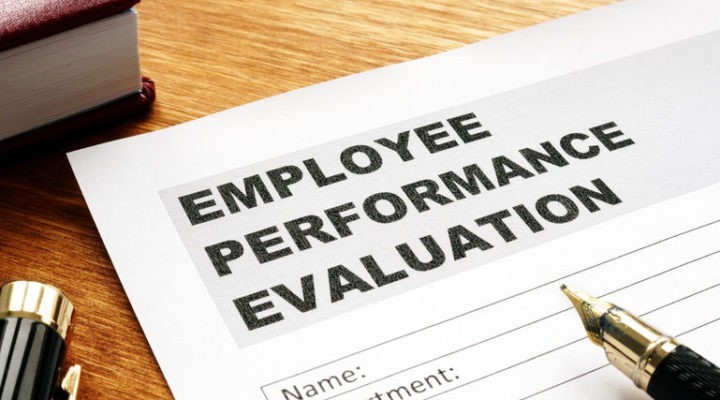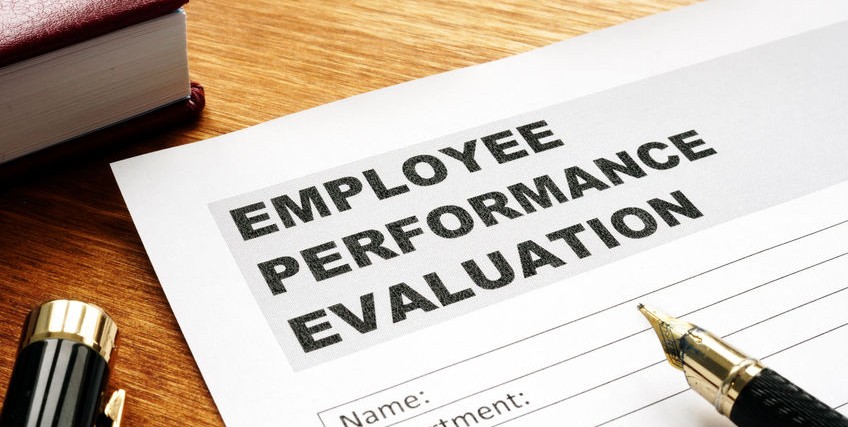Many churches designate autumn as the best season to do staff evaluations. How is this important task even possible during a pandemic?
I believe unprecedented times demand a different process. As a vocational minister for three churches over a period of 27 years, I’ve experienced my fair share of evaluation approaches and methodologies. Now that I’m serving in a denominational role, I want to share “inside trader” information intended to help your church’s personnel team realize staff evaluations need to look and feel different this year.
This is awkward in a good year

Terry Maples
I start by acknowledging how awkward the evaluation process is for church staff. In many cases, church staff ministers supervise and guide the work of those who evaluate them — and “pay” their salaries. Most of my colleagues dread this season like the plague. Is it because they don’t want to hear negative or critical feedback? Of course, but more importantly, they are keenly aware of how awkward it is to be “supervised” and “evaluated” by folks whose perspective (and often whose understanding) is limited.
For example, a personnel team member may have objective feedback about, literally, only one public role she or he sees — like making announcements or offering prayers during worship or preaching. Lay leaders do well to acknowledge they know very little about what a staff member does (or doesn’t do) during normal work weeks. Acknowledging limited perspective regarding the work and ministry of a staff member is crucial lest personnel folks try to turn a small slice of ministry into the whole.
Members who serve on personnel teams usually take their responsibility to observe staff members very seriously. That’s a good thing. Certainly, communicating what was noticed during the year is important and essential to the process, but a personnel team must be careful not to confront the minister with a catalog of negative “complaints” in a heavy-handed manner. High-functioning teams ongoingly reflect upon major events and experiences, so evaluation happens regularly. Chances of making substantive change are much better if feedback comes closer to the event.
I hope you agree the main reason you don’t want a staff evaluation process to become a “pile on” session is because you rightly understand evaluations are first and foremost to support and encourage the growth of the staff minister. Fortunately, I’ve only experienced a couple of discouraging annual reviews. As an Enneagram 3 who is concerned about functioning well, I work hard and prefer, if at all possible, to avoid criticism.
My first church position evaluation
In my first church out of seminary I was young, inexperienced and in need of some guidance, meaning “hand holding.” I possessed a seminary diploma, great ideas about how to do Christian education in the local church, and lots of energy. However, the largely senior adult congregation told me early on, in no uncertain terms, “We don’t want your newfangled ideas; just write a Sunday school growth article for the newsletter each week, that’s all.”
I was not deterred and kept trying to awaken consciousness about “a better way forward.” In my third-year evaluation, I was, in the words of my wife, “escorted in to the inquisition.”
The chair of the Personnel Committee explained I was not doing a good job because I wasn’t willing to play by the rules and give people what they wanted. I received (and knew it myself) strong indicators I was a poor fit for the congregation and told the personnel group during the meeting I would as soon as possible find another place to serve. Very quickly I was called to a wonderful congregation in Virginia that restored my confidence in my ability to serve effectively in vocational ministry.
Being told I wasn’t performing well in my first church staff position was hard on me. By that time in my life, I had held a number of jobs. In every one I was told regularly, “You are the best person we’ve ever hired for this position.” Comparing my encouraging secular experiences to abject failure in my first church role was distressing — maybe even a crisis. Because this first church-based role was such a poor fit, I engaged in private career assessment to reassure myself I had not misunderstood my calling. Joan and I met with a seasoned coach who offered wise and calming counsel when he very plainly stated: “Terry, you have many options. You can return to doing accounting or you can choose to serve another, different church. What happened at your first church does not control your future.”
The stakes are high this year for pastors and churches
My story can be instructive for churches engaging in staff evaluations during the pandemic. I’m not a prescriptive leader and don’t believe in telling people what to do, but I feel I must state as clearly as I can, Doing staff evaluations poorly during this incredibly difficult time in the life of a church can do great harm — to ministers and congregations alike.
Many excellent articles have been written about the extra stress clergy are carrying and how some have even considered harming themselves. Clergy are being asked to do much for which they are not trained (and don’t feel called to). “I wasn’t built for this,” is a frequent refrain.
The stress of recording worship experiences each week; the strain of not being allowed to visit or touch church members; the challenge of preaching funerals when you can’t see faces of family members (if you risk having a service at all); fear you aren’t doing enough in the minds of your members; debates over whether to wear masks or not. All this makes a recipe for disaster.
An idea for a better way
There is a better way. Our organization engages in staff evaluations prior to budget discussions each year. Thinking ahead, I talked with our moderator, Michael Cheuk, about my conviction that during this “abnormal” year we could not engage in a traditional type of evaluation. He agreed, and we designed a process I want to share with you.
First, we crafted questions and topics for each staff member to answer.
Looking back
- How would you assess your work before COVID-19?
- What accomplishments do you celebrate?
- How has COVID-19 affected your work?
- What losses have you experienced in your work? How have you grieved?
Looking forward
- What new insights, skills, practices, habits have you gained during the pandemic? How do you hope to employ them?
- How can your goals contribute to the mission of CBFVA during the upcoming year?
- What will you need in order to meet your goals (personal and organizational)?
Second, each staff minister was given time to talk openly with our Advisory Council (that functions as personnel team). The purpose of this time was for the Advisory Council to listen and offer support and encouragement. Up front, staff members were told salaries would be frozen, so the evaluation time was not tied to raises. Staff members drove the agenda while our moderator facilitated with prompting questions as needed.
Third, our moderator gleaned feedback from each member of the Advisory Council, then crafted an executive summary including system-wide assets and strengths, system-wide opportunities for growth (note: not individual), and coaching questions for the staff to consider together.
Fourth, a couple weeks after the meetings with staff, the moderator set a time to share and discuss the executive summary with the entire staff. This very effective approach has already yielded fruit for us.
This is not the only way to do staff evaluations during a pandemic, but I am sounding an alarm about the need to craft a process that encourages and supports staff ministers who already are stressed to the max.
Remember, church is a relationship enterprise. Please consider this blog and my words to be your invitation to build and strengthen relationships with staff ministers. Check in with your spiritual leaders; make sure they engage in self-care. Communicate your love, offer support and encouragement, and listen deeply. In this way, your congregation shows the grace and compassion very much needed during a pandemic.
Terry Maples serves as coordinator of Cooperative Baptist Fellowship Virginia. He previously served in a similar role with Tennessee CBF and served as educator in three congregations in Florida and Virginia, including almost 20 years at Huguenot Road Baptist Church in Richmond and five years at Westwood Baptist Church in Springfield, Va.
Related articles:
Five reasons your church probably isn’t spending too much on personnel


